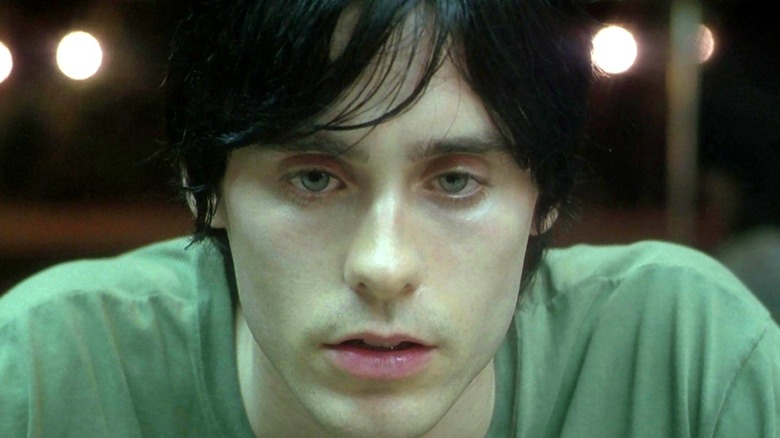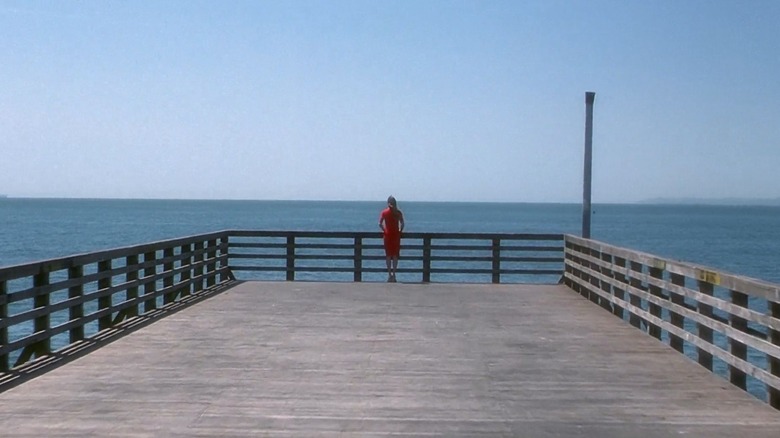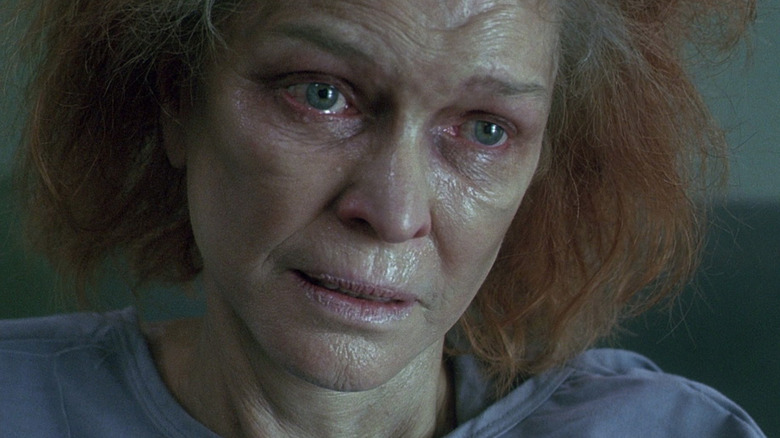The Surprising Sound Clint Mansell Used To Craft Requiem For A Dream's Score
Director Darren Aronofsky's "Requiem for a Dream" is one of the most stunning and heartbreaking films to ever depict the loneliness and depravity associated with addiction. Adapted from Hubert Selby Jr.'s 1978 novel, Aronofsky's sophomore feature film cemented the filmmaker's unique style, combining gorgeous cinematography, close-up shots, and a harrowing score that perfectly enhances the disturbing fate of its characters. And years later, that score still haunts us.
A frequent collaborator with Aronofsky, composer Clint Mansell was able to apply his own menacing and melodic motifs that launched a career full of equally haunting scores. And some of the sounds featured in the score are, well ... unlikely.
Hope overture
Before launching his career as a Golden Globe and Grammy-nominated film composer, Clint Mansell was the lead singer and multi-instrumentalist of the English alt-rock band Pop Will Eat Itself, a group he formed when he was only 19. He sang vocals and supplied bass, guitars, keyboards, programming, samples, turntables, and drums. To say Mansell is a badass is obviously an understatement. Mansell's score for "Requiem for a Dream" is probably his most known work to date, with the progression of the music audibly conveying the literal highs and lows of addiction. The intro song "Summer Overture" utilizes strings from the Kronos Quartet to relay a sense of hope and excitement. As the songs and film progress, the thrill of getting high grows increasingly more chaotic and dangerous. And so does the music.
In an interview with IndieWire, Aronofsky detailed some of the unique behind-the-scenes approaches Mansell took in order to emotionally strike audiences. He stated:
"It's a great score, actually, some of Clint's beats, for instance, are samples from Bruce Lee punches, stolen from movies and basically, turned into beats. For the third act, for that driving music which climaxes the film, we sampled from the greatest Requiems of all time, Mozart, Verdi, and put them into a drum machine and programmed them and gave that to the Kronos Quartet and they played over it."
Utilizing samples from Bruce Lee's punches is brilliantly apt. Mansell's "Requiem" score is a myriad of musical elements with strings, viola, cello, hip-hop beats, and a splash of techno. This mix of musical genres is reminiscent of Lee's Jeet Kune Do, a hybrid martial arts philosophy that's been credited for paving the way for mixed martial arts (MMA). By combining various styles, a creative sound is produced in order to capture the multi-faceted monster that addiction truly is.
The sound of suffering
Suffering reverberates throughout "Requiem" as Aronofsky brutally reveals multiple ways in which addiction can damage people's lives. One of the most memorable titles in the film's score is "Lux Aeterna," which translates to "eternal light" in Latin. In an interview with Vice, Mansell explained that the melancholy song has "gone on to have a life of its own." Its role as the film's leitmotif has expanded into the realm of video games, movie trailers, sports events, and YouTube videos. In a way, the core sound of "Requiem" speaks to the universality of its characters. Addiction, grief, loss, and shattered hopes can effect us all, no matter what our background may be.
Aronofsky originally wanted the score to be hip-hop (reflective of his youth spent in Brooklyn), but Mansell explained the origin of "Lux Aeterna" in an interview with NPR. The theme plays in different parts of the film as the audience bears witness to the stranglehold addiction has on each character. Morphing into different variations over time, the theme eventually crescendos at the end of the film as each character seals their fate and reverts back to the coiled fetal position, a poignant visual metaphor of innocence and hope lost.
The tracks are broken into different seasons: Summer, Fall, and Winter. Spring never arrives and the characters are instead left alone in the cold grasp of their vices. Mansell meticulously captures the deceptive nature of addiction and leaves an impactful mark on audiences that both haunts and shocks decades later. Like Bruce Lee's powerful punches, Mansell's score hits full-force and became a monster of success in its own right.


